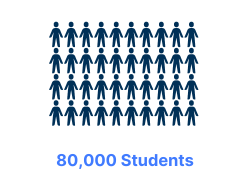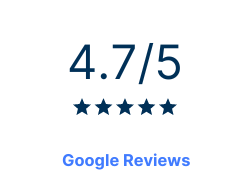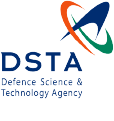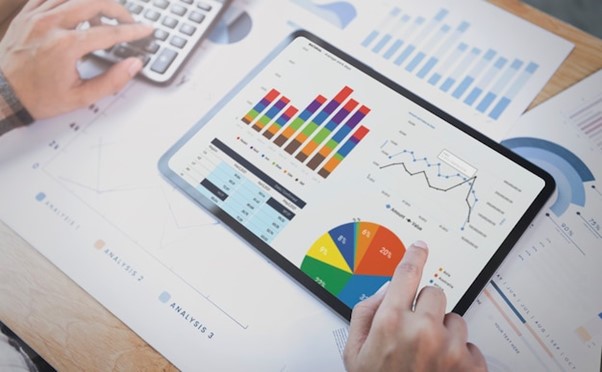
What does it mean to be a Data Analyst?
Excel data analysis involves cleaning, transforming, and analyzing raw data to obtain meaningful, relevant statistics. It decreases the risks associated with decision-making. Some data analysis examples include sorting, filtering, and formatting.
A Data Analyst is someone who works with data and presents it in a way to provide valuable insights for better decision-making. They help translate a massive set of numbers into simple language and visualizations for effective decision-making.
Data Analysts Skill Set
Data analysis is a valuable skill to get better insights into data. As a data analyst, one needs to have a good grip on databases like SQL and NoSQL, as well as programming languages like Python and R. Being experienced in Microsoft Excel, Matlab, and IBM SPSS, Python and R. Being experienced in Microsoft Excel, Matlab, and IBM SPSS helps to analyze trends and drive accurate insights. These should also be combined with an understanding of statistics and mathematical topics like Linear Algebra and Calculus.
What kind of businesses employ data analysts?
As the world moves towards AI, Data Scientists and Analysts are going to be very high in demand. Data Analysts work on various kinds of projects like Hadoop Clusters, container virtualization, and various cloud services.
Data Analysis Process
The iterative Data Analysis process involves the following:
- Data Requirements Specification - To decide what data needs to be collected, a question or an experiment needs to be produced. This will reveal what data (e.g., sales, population, etc.) needs to be ascertained. Data can be numerical or categorical. Specific variables regarding a sales population (e.g., target, Age group, and Income) will also be specified and obtained.
- Data Collection - This is the process of gathering information on targeted variables identified in the requirements. This gathering needs to be done accurately and honestly to ensure the related conclusions are valid. This initial data gives a baseline to measure and improve from. Data is collected from various sources from organizational databases to the information on web pages. The acquired data may not be structured or may contain irrelevant information. Thus, the collected data is required to be subjected to Data Processing and Data Cleaning.
- Data Processing - Collected data is processed, which includes structuring the data as per the requirement of the relevant Analysis Tools. A Data Model may also be required.
- Data Cleaning - There may be errors or duplication in processed and organized data which require data cleaning. There are various types of cleaning methods. For example, while cleaning the financial data, certain totals might be compared against reliable published numbers. Similarly, quantitative data methods can be used for outlier detection that would be subsequently excluded from the analysis.
- Data Analysis - Clean and processed data is needed for analysis. Data analysis techniques allow us to understand, interpret, and derive conclusions based on the requirements. Data Visualization is also used to display the data to obtain additional insight regarding the messages within the data. Statistical Data Models like Correlation and Regression Analysis are used to identify the relations between data variables. These models are data descriptive and help simplify analysis and communicate results. This may require additional Data Cleaning or Data Collection; hence, these activities are, by nature, iterative.
- Data Communication - The results of the data analysis are reported in a format as per user requirements to support their decisions and further action. User Feedback might result in additional analysis or data visualization techniques, such as tables and charts, to communicate the message clearly and efficiently to the users. Analysis tools can highlight the required information with color codes and formatting in tables and charts.
How are data analysis and Excel connected?
You may think that “Is Excel considered a Data Analysis tool?”. The answer is YES. Microsoft Excel, a popular spreadsheet tool, is now one of the most popular data analysis programs. It provides built-in pivot tables and allows you to examine, interpret and display data in various ways. The Information source can be from several different places. You can apply various formatting and conversions to data. Various Excel data analysis commands and functions are available for data analysis. It is also well-known and has an intuitive interface.
However, it still has limitations. A test conducted by the University of Massachusetts shows some caveats about using Excel for Data Analysis. The conclusion covered caveats in four general areas:
- Inconsistent and incorrect handling of missing values
- The difference in data organization for different analyses often leads to the reorganization of data for every further analysis.
- Various Analyses are done in one column at a time.
- Poorly labeled and organized output with no record of how an analysis was accomplished.
Best Excel data analysis online course
If you are looking to learn Excel data analysis online, we recommend undertaking a professional course. We offer specialist data analysis courses which can be attended remotely and provide you with the skills needed to become a data analysis expert! If you want to start at a more foundational level, you could first consider learning the Excel fundamentals.
In how many days can I learn Excel and data analysis?
It all depends primarily on the individual. Various basic courses can be done in one month. The more advanced courses take about six months to one year.
Conclusion
We hope you have learned how Excel is an essential tool for data analysis. It is not just a spreadsheet document for making charts and tables. It has evolved into a significant data analysis tool. Check out our other articles to learn more about Data Science.
 Australia
Australia
 New Zealand
New Zealand
 Singapore
Singapore
 Hong Kong
Hong Kong
 Malaysia
Malaysia
 Philippines
Philippines
 Thailand
Thailand
 Indonesia
Indonesia
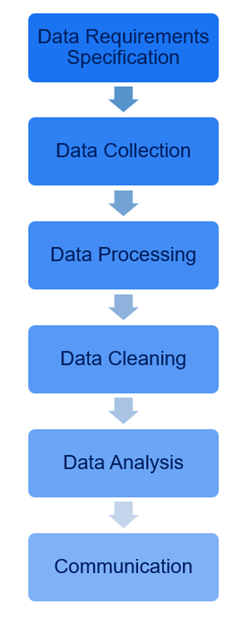
 phone
phone
 email
email
 enquiry
enquiry
